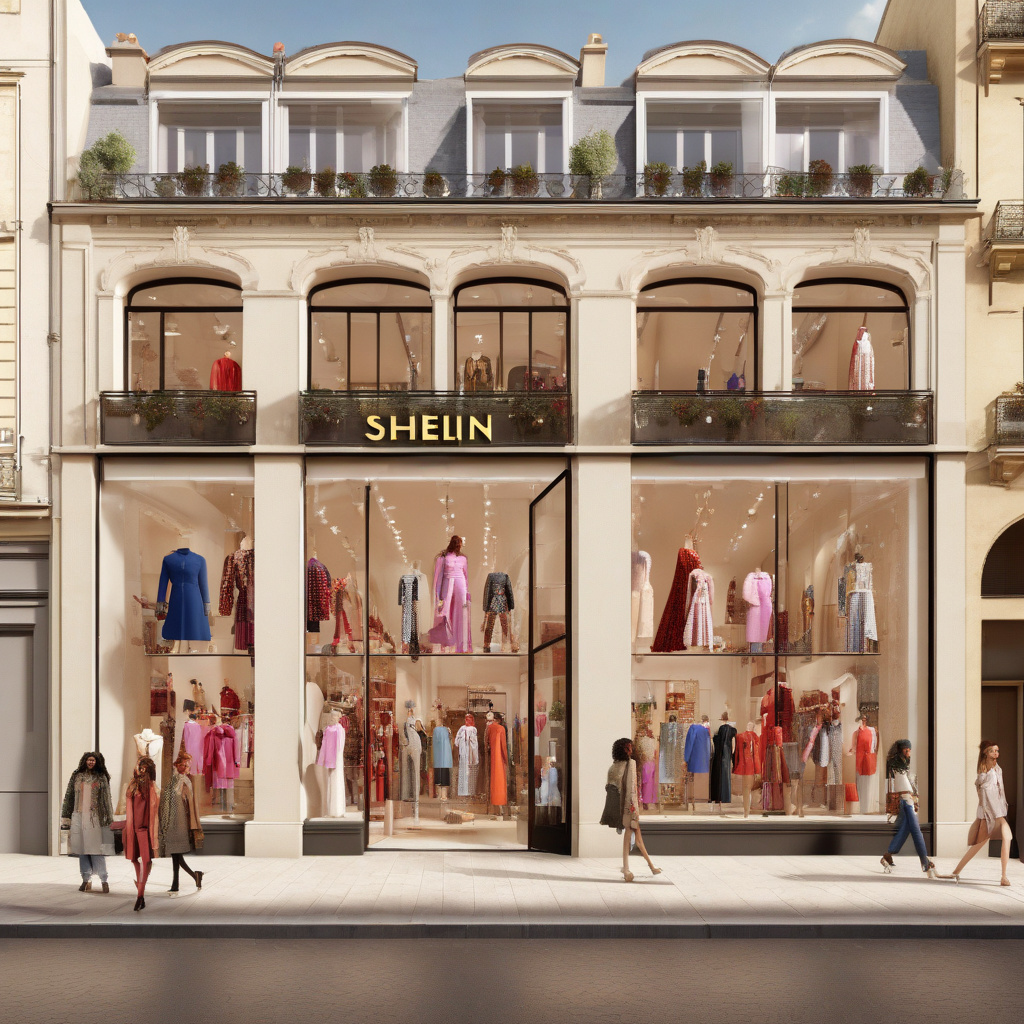Shein Faces Backlash as it Plans First Permanent Stores in France
Shein, the fast-fashion giant, is making bold moves as it prepares to open its first permanent “shop-in-shops” in France this November. The locations chosen for this expansion are within the prestigious BHV and Galeries Lafayette department stores. While this strategic decision is aimed at capturing a younger demographic and expanding Shein’s physical presence in the region, it has sparked significant backlash from French retailers.
The entry of Shein into the French retail market has raised concerns among local fashion associations and industry players. The fear is that Shein’s business model, known for its low prices and rapid production cycles, will further saturate the market with disposable, trend-driven products. This, in turn, could exacerbate the challenges already faced by struggling French brands that prioritize quality, sustainability, and craftsmanship.
One of the primary criticisms leveled against Shein is its environmental impact. Fast fashion brands like Shein have been under scrutiny for their contribution to the industry’s carbon footprint, excessive waste generation, and questionable labor practices. By setting up permanent stores in France, Shein risks being seen as a proponent of a throwaway culture that runs counter to the growing demand for ethical and sustainable fashion choices.
Moreover, the arrival of Shein’s physical stores in France poses a threat to local retailers who have been grappling with the economic fallout of the pandemic. The allure of Shein’s affordable prices and vast product range could divert customers away from traditional brick-and-mortar stores, further straining the already fragile ecosystem of French retail.
Despite the criticism and concerns surrounding Shein’s expansion in France, it is essential to acknowledge the factors that have propelled the brand to its current global status. Shein’s success lies in its adeptness at leveraging digital marketing, data analytics, and e-commerce strategies to cater to the ever-evolving preferences of young consumers worldwide. By blending influencer collaborations, social media engagement, and targeted advertising, Shein has cultivated a massive online following and disrupted traditional retail paradigms.
To mitigate the backlash and address the apprehensions of French retailers and consumers, Shein must demonstrate a commitment to responsible business practices and sustainability. Embracing transparency in its supply chain, implementing ethical sourcing policies, and investing in eco-friendly initiatives are crucial steps for Shein to align with the values and expectations of the French market.
In conclusion, Shein’s decision to establish permanent stores in France marks a significant milestone in its global expansion strategy. However, the brand’s success in this new territory will depend on its ability to navigate the cultural, ethical, and competitive landscape of the French retail market. By striking a balance between affordability, quality, and sustainability, Shein can potentially win over critics and carve out a lasting presence in one of the world’s fashion capitals.
Shein, France, Retail, Fashion, Sustainability
